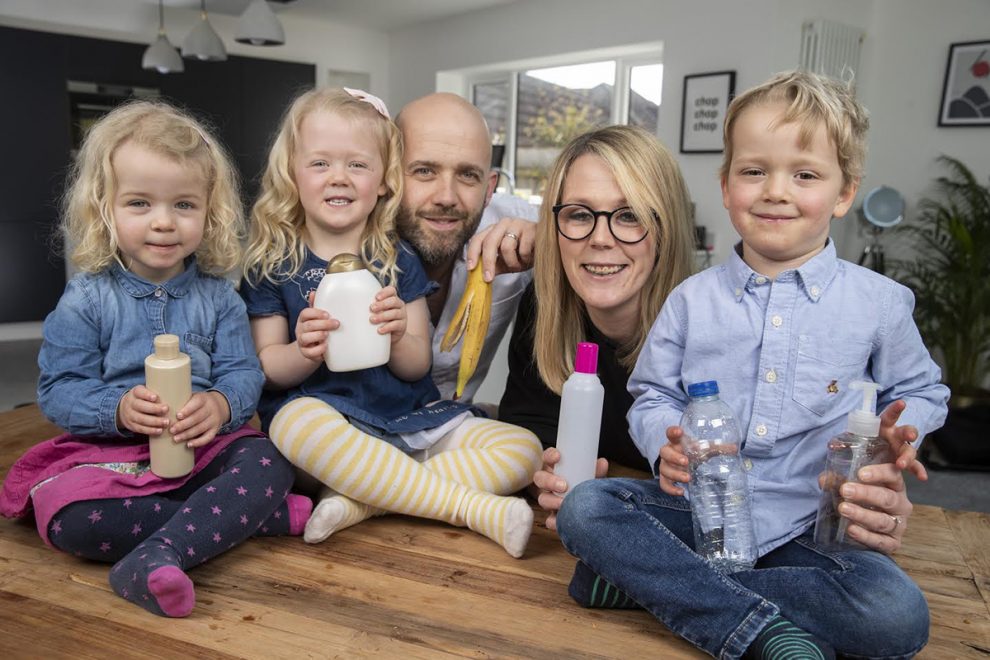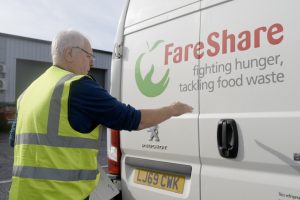ON Global Recycling Day today (March 18 2021), and around a year since the pandemic changed our lives, figures from WRAP have revealed one positive impact of living through lockdown – that Wales is recycling more than ever before and is one step closer to becoming the world’s best recycling nation.
With the nation’s recycling rate at an all-time high (65% in 2019/20, up from 63% in 2018/19*), Wales is currently ranked third best in the world at recycling.
Data from WRAP, the charity behind Wales Recycles, shows that 92% of us now regularly recycle at home, with 55% of us recycling more than we were 12 months ago.
The increase in recycling has gone hand in hand with a greater desire to help the planet, with most of us (62%) choosing to recycle to reduce our impact on the environment.
Some of the biggest increases in recycling have been seen among families across Wales, with almost two thirds (63%) of families recycling more over the last 12 months.
One family from Penarth have used the extra time they have at home to help them recycle better. Parents Beth and Jonathan Ellis live with their three children, Macsen and Mali aged 5 and Loti aged 3.
Mum Beth said: “Since we have all spent so much more time together at home, we’ve become so aware of how quickly our bins fill up. With the children being home schooled and Jon working from home it’s made us realise how much waste we create as a family – especially food waste as we’re preparing meals and all eating at home together so much more now. There’s also all the extra food packaging like plastic trays, yogurt pots and drinks bottles we end up with at home.
“The good thing is that all this extra stuff is getting recycled and not thrown away. We recycle all we can, especially our food waste because it’s so easy to do. All our inedible food waste goes in the caddy such as banana peels and apple cores from the kids’ snacks. Eggshells, bones and fruit peelings from our dinners, any plate scrapings, as well as used teabags and coffee grounds all go in too.
“It feels good to know we’re doing our bit to help the environment. Recycling is the one thing that everyone can do to make a difference, especially while we’re all at home.”
Recycling food waste helps to directly tackle climate change as when it is recycled it is converted into renewable energy which reduces our reliance on non-renewable energy sources. Wales is the only UK nation to offer all Welsh residents a food recycling service.
Marcus Gover, Chief Executive Officer at WRAP, explains: “Recycling plays a crucial part in helping to protect the environment. Every time we put a household item out for recycling instead of throwing it away, we are helping to conserve natural resources and reduce the effects of climate change.
“The pandemic hasn’t held us back and despite the hardship that many of us have faced, we should be proud of our recycling achievements to date.
“But while more than half of us are now recycling more than we were last year, we can all continue to make small changes to ensure we are recycling certain products instead of throwing them away.
“Some items are still going into the general waste that could instead be recycled. This is commonly inedible food waste such as fruit and vegetable peelings as well as dry materials like clean tin foil, empty aerosols, and plastic bottles of cleaning sprays, shampoo and shower gel.”
On 2 March, Welsh Government launched its ‘Beyond Recycling’ strategy, setting out ambitious plans to recycle 70% of waste by 2030 and to become a zero-waste nation by 2050.
Lesley Griffiths, the Minister for Environment, Energy and Rural Affairs, said: “As Wales looks ahead to its recovery following the COVID-19 pandemic, the way we manage our resources has never been more important.
“We have committed to a series of positive actions that will achieve a circular economy in Wales where all products and resources are kept in use for as long as possible and not thrown away.
“We have shown we are a nation of committed recyclers and we have what it takes to achieve these goals. With our recycling rate now at 65%, which exceeded the target, we have made progress to be proud of.
“Recycling is something we can all do from home to help save valuable resources, so let’s continue to recycle our household waste to help tackle the climate emergency and make Wales a healthier, cleaner and greener place to live for future generations.”
Celebrity chef, author and ultra-athlete Matt Pritchard is supporting Wales’ drive to get to number one by sharing how easy it is to recycle at home, highlighting key items that can be recycled but are commonly thrown away here.
“I try and make sure I recycle from all around my house, not just from the kitchen and living room. Empty shampoo bottles and shower gels from the bathroom can all be recycled, along with empty aerosols from the bathroom. It’s massively important we recycle all we can to help the future of the planet.”
Wales Recycles has shared its top five tips on how we can all make small changes to further boost our recycling efforts to get Wales to become a world leader and reach zero waste by 2050.
If you’re cooking, put all inedible food waste such as vegetable peelings and stalks into your food waste caddy, along with eggshells and any bones leftover from meat or fish. Teabags, coffee grounds and fruit peelings can also be recycled. When food is recycled it is turned into renewable energy. One recycled banana peel can produce enough energy to charge two smartphones.
- Boss your bathroom bottles
Most household plastic items can be recycled including bathroom toiletries such as plastic shampoo, conditioner, hand soap and shower gel bottles. When they’re finished, give them a rinse, and put them in your recycling bin. It takes 75% less energy to make a plastic bottle from recycled plastic compared with using ‘raw’ materials, so protect the planet from your bathroom by recycling.
- Ace your aerosols
Deodorant, dry shampoo and air freshener aerosols can all be recycled. Metal is infinite, meaning it can be recycled again and again without losing any of its quality. 73% of people in Wales already recycle their empty aerosol cans.
- Go green with your spring clean
Empty cleaning product bottles can be recycled – from plastic bleach bottles to trigger sprays and furniture polish aerosols. Make sure they’re empty and put them into your recycling instead of throwing them away. Recycling just one cleaning spray bottle saves enough energy to charge six tablets.
- Clear out your clutter
Spring is traditionally a time to have a sort-out at home. Instead of throwing items away, check the Wales Recycles Recycling Locator for more information on where to recycle items such as batteries, clothing, and small electrical items.


















Add Comment